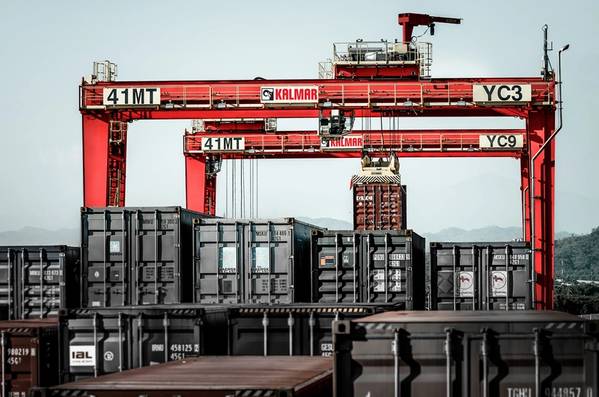
Cargotec company Kalmar has been contracted by DP World to supply 15 rubber-tired gantry cranes (RTGs) for the Nhava Sheva International Container Terminal (NSICT) in Mumbai, India.
The order includes 24 months of on-site maintenance support, with delivery scheduled to be completed during Q4 2020. NSICT was India’s first public-private partnership project and is part of the country’s largest port, Jawaharlal Nehru Port Trust (JNPT), which handles 40 percent of India’s maritime trade.
The Kalmar Classic RTG combines the diesel and electric technology to give fuel savings, low emissions and easy maintenance and, at 1,000 hours, has one of the longest maintenance intervals in the industry. In addition, its modular design enables tailored operation to meet customer requirements. The units being delivered to Nhava Sheva will be equipped with a Variable Speed Generator (VSG) to enable high fuel economy and lower emissions by automatically optimising RPM according to the required power.




